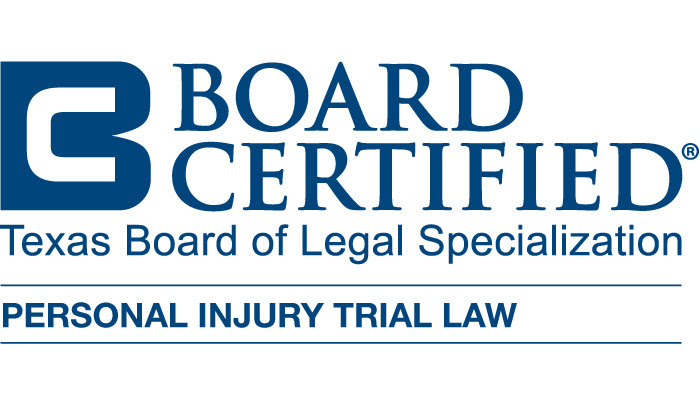Drowning incidents are tragic events that can leave families devastated and searching for answers. In Texas, drowning cases are unfortunately not uncommon. Understanding who is liable in such situations is a complex process that requires a thorough understanding of the legal landscape. Willumsen Law Firm, P.C. is dedicated to guiding families through this challenging time, helping them navigate the intricacies of the law to seek justice and compensation.


Understanding Drowning Liability
Determining liability in drowning cases involves a careful examination of the circumstances surrounding the incident. The legal framework in Texas considers several factors, including the location of the drowning, the conditions of the environment, and the behavior of the parties involved. One of the critical aspects of such cases is whether negligence played a role in the drowning. Negligence occurs when a party fails to exercise reasonable care to prevent harm to others. In the context of drowning, this could involve inadequate supervision, lack of proper safety measures, or failure to maintain a safe environment.
For instance, in public swimming pools or water parks, the management is responsible for ensuring the safety of visitors. This responsibility includes having trained lifeguards on duty, maintaining the cleanliness and safety of the water, and providing clear signage about potential hazards. If a drowning occurs due to the absence of these safety measures, the management could be held liable. Similarly, private pool owners must ensure that their pools are secure and safe for guests, especially children. This could involve installing fences, covers, and alarms to prevent unsupervised access.
Premises Liability and Drowning Cases
Premises liability is a critical aspect of determining liability in drowning cases. In Texas, property owners have a duty to maintain their premises in a reasonably safe condition and to warn of any known dangers. This duty varies depending on the status of the person on the property. Invitees, such as guests at a hotel pool, are owed the highest duty of care, while licensees, such as social guests at a private pool, are owed a moderate duty of care. Trespassers, however, are generally owed the least duty of care, although exceptions exist, especially if the trespasser is a child.
The attractive nuisance doctrine is particularly relevant in cases involving children. Under this doctrine, property owners may be liable for injuries to children who trespass on their property if the injury results from a hazardous object or condition that is likely to attract children. Swimming pools are considered attractive nuisances because they draw children who may not appreciate the dangers they pose. Property owners must take reasonable steps to secure these hazards to prevent accidental drownings.
My focus is to give a voice to families who have suffered a wrongful death or a serious injury to a family member caused by an 18-Wheeler, commercial truck, or a drunk driver. Contact us today, we can help you.Helping Injury Victims for Over 25 Years
The Role of Negligence in Drowning Incidents
Negligence is central to many drowning cases. To establish negligence, it must be proven that the defendant owed a duty of care to the victim, breached that duty, and caused harm as a result. This involves showing that the defendant’s actions or inactions were unreasonable under the circumstances. For example, if a pool owner fails to repair a broken fence that allows a child to access the pool unsupervised, and the child drowns, the owner may be found negligent.
In some cases, negligence may also involve a failure to provide adequate supervision. Lifeguards and caregivers have a responsibility to monitor swimmers and intervene if someone is in distress. If a lifeguard is distracted or not present when needed, and a drowning occurs, the lifeguard or their employer could be held liable. Similarly, parents or guardians who leave children unattended near water may also be found negligent if a drowning occurs.
Product Liability and Defective Equipment
In certain instances, drowning incidents may be linked to defective products or equipment. Product liability laws hold manufacturers and sellers responsible for ensuring that their products are safe for consumers. This includes swimming pool equipment, flotation devices, and other safety gear. If a drowning occurs due to a defective product, such as a malfunctioning pool drain that traps a swimmer, the manufacturer or distributor could be held liable.
Proving product liability involves demonstrating that the product was defectively designed, manufactured, or lacked adequate warnings. For example, if a flotation device fails to keep a child above water due to a design flaw, the manufacturer could be responsible for any resulting harm. In these cases, testimony and product testing are often crucial to establishing liability.
Government Liability in Public Waterway Drownings
When drownings occur in public waterways such as lakes, rivers, or beaches, determining liability can be more complex. Government entities responsible for maintaining these areas may be held liable if they fail to provide adequate safety measures or warnings. However, suing a government entity involves navigating specific legal hurdles, including the Texas Tort Claims Act, which outlines the circumstances under which a governmental body can be sued.
The Texas Tort Claims Act generally provides immunity to governmental entities, but exceptions exist for cases involving personal injury or death caused by the negligence of government employees. For example, if a public beach lacks adequate warning signs about dangerous currents, and a swimmer drowns as a result, the government entity responsible for the beach could potentially be held liable. Proving such cases requires a detailed investigation and often the assistance of legal professionals experienced in handling claims against government bodies.
The Impact of Comparative Fault
Texas follows the doctrine of comparative fault, which can significantly impact drowning cases. Under this doctrine, the fault for an accident can be divided among multiple parties, including the victim. If the victim is found to be partially at fault for their own drowning, their compensation may be reduced proportionally. For example, if a jury determines that a swimmer was 30% responsible for their own drowning because they ignored safety warnings, any damages awarded would be reduced by 30%.
This aspect of Texas law underscores the importance of a thorough and nuanced approach to each case. Legal representatives must meticulously analyze the circumstances to build a strong case that minimizes the assignment of fault to the victim. This involves gathering evidence, interviewing witnesses, and consulting with specialists to paint a clear picture of what happened and who is responsible.
Related Videos
Choosing a Personal Injury Attorney
Types of Compensation in a Truck Accident Claim
Pursuing Legal Action in Drowning Cases
Pursuing legal action in drowning cases requires a comprehensive understanding of the various legal principles involved. It begins with a thorough investigation to gather evidence and establish the facts of the case. This may involve obtaining police reports, medical records, and eyewitness statements. In some instances, testimony may be necessary to explain technical aspects, such as how a defective product contributed to the drowning.
Once sufficient evidence is gathered, the next step is to file a lawsuit. In Texas, the statute of limitations for personal injury cases, including wrongful death due to drowning, is generally two years from the date of the incident. It is crucial to act promptly so that the case is filed within this time frame. The legal process involves multiple stages, including discovery, negotiation, and potentially a trial. Throughout this process, the goal is to achieve a fair settlement or verdict that compensates the victim’s family for their loss.
Compensation in drowning cases can cover a wide range of damages, including medical expenses, funeral costs, loss of income, and pain and suffering. In cases of gross negligence or willful misconduct, punitive damages may also be awarded to punish the wrongdoer and deter similar behavior in the future.
Emotional and Legal Support for Families
The aftermath of a drowning incident is a difficult time for families, filled with grief and confusion. Navigating the legal process can be overwhelming, especially when dealing with the emotional impact of the loss. This is where compassionate legal representation becomes invaluable. A dedicated legal team provides not only legal experience but also emotional support, guiding families through each step of the process and seeing to it that their voices are heard.
Legal professionals understand the unique challenges that come with drowning cases. They work tirelessly to build a strong case, advocating for the rights of the victim’s family and striving to hold the responsible parties accountable. This support extends beyond the courtroom, offering families the resources and guidance they need to cope with their loss and move forward.
Getting the Justice You Deserve
If your family has been affected by a drowning incident, you do not have to navigate this challenging time alone. Willumsen Law Firm, P.C. is here to help you understand your rights and pursue the justice and compensation you deserve. With a deep commitment to their clients and a thorough understanding of Texas law, the team at Willumsen Law Firm, P.C. is prepared to handle the complexities of your case with sensitivity and dedication.
Contact Willumsen Law Firm, P.C. today for a free consultation. Let us provide the legal support you need to find answers and hold the responsible parties accountable. Your family’s journey to justice and healing begins with a single step. Reach out to Willumsen Law Firm, P.C. and let us be your advocate during this difficult time.



